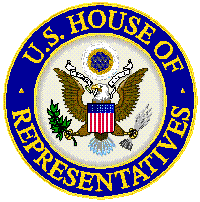 CONGRESSMAN JIM
OBERSTAR
CONGRESSMAN JIM
OBERSTARMarch 15, 2000
OBERSTAR PRAISES APPROVAL OF AVIATION
LEGISLATION WASHINGTON—The House of Representatives today
passed the Wendell Ford Aviation Investment and Reform Act (HR 1000), a $40
billion funding bill for federal aviation programs through Fiscal Year 2003,
increasing investment in airports, air traffic control systems and other
facilities by some $10 billion over present levels. The bill will provide $16.6
million for airport improvements in Minnesota in the next fiscal
year. The bill’s passage comes two weeks after House
and Senate conferees reached a compromise on budget matters and other provisions
that had stalled progress on the bill for nearly two years. The bill sets historic precedent by guaranteeing
that revenues collected through aviation taxes and deposited in the Airport and
Airways Trust Fund will be dedicated to investment in aviation programs. In
previous years, Congressional appropriators allowed surpluses to build up in the
trust fund in order to spend more funds on programs and activities not related
to aviation. Members of the House Transportation and Infrastructure Committee
protested that the money in the trust fund was collected for a specific purpose.
To withhold that money to cover spending for other purposes betrays the trust of
the travelers who paid the tax. "What we are doing is keeping faith with the
traveling public who agreed to be taxed for a specific purpose," said Rep. James
Oberstar (Minn.), Ranking Democratic Member of the committee. In Minnesota, the bill provides $16.7 million
for commercial airports and $16.6 million for general aviation airports each
year. There is also an annual cargo entitlement of $698,000 for Minneapolis-St.
Paul International airport. HR 1000 also allows local airports to raise
additional revenue by increasing the cap on locally imposed Passenger Facility
Charges (PFCs) from $3.00 to $4.50. It increases competition at Chicago’s O’Hare
airport and New York’s LaGuardia and John F. Kennedy airports by phasing out the
high density rule, which requires airlines serving those airports to be assigned
a slot for each take-off and landing. This rule has been cited as a barrier for
new airlines wishing to enter these markets. The bill modifies the high density
rule at a fourth airport, Washington’s Reagan National, by adding 24 slots a
day. The bill provides relief from the Death on the
High Seas Act (DOHSA) for people who lose family members in an airline crash at
sea. Accidents which occur within 12 miles of the U.S. shoreline will no longer
be covered by DOHSA, and survivors will be allowed to sue for loss of
companionship in disasters outside the 12-mile limit. DOHSA, enacted in the
1920s, only allows compensation for loss of income due to a death at sea.
Consequently, survivors could not sue for damages if the victim were a child or
other non-income producing member of the family. Under HR 1000, families will be
able to seek compensation for such a loss. The bill was named for Sen. Wendell H. Ford,
former Democratic Senator from Kentucky, who was a leader on aviation issues.
The Senate approved the bill March 8. Annual Entitlements under HR 1000 for
Airports in Minnesota’s Eighth Congressional District Duluth International Duluth $ 1,404,042 Falls International International Falls 1,000,000 Chisholm-Hibbing Hibbing 1,000,000 Brainerd-Crow Wing County Brainerd
1,000,000 The following small airports will share $1.78 million a
year: Aitkin Municipal Grand Rapids-Itasca County Cambridge Municipal Little Falls-Morrison County Cloquet-Carlton County Mora Municipal Duluth Sky Harbor Princeton Municipal Ely Municipal Silver Bay Municipal Eveleth-Virginia Municipal Two Harbors Municipal Grand Marais-Cook County
Room 2365 RHOB, Washington, DC,
20515
(202)225-6211